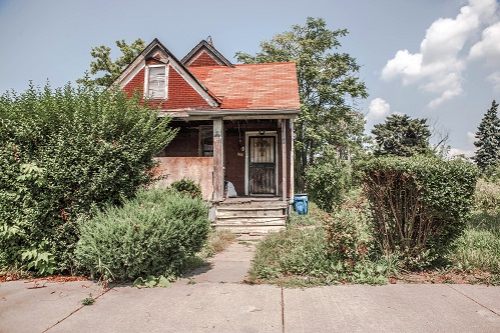How does HOA insurance work?
HOA insurance works like other insurance policies: protecting against property damage and liability claims. If community property gets damaged or if someone sues the HOA, the insurance company will review the claim and determine what is covered.
Incidentally, not all lawsuits against HOAs are for physical injuries. Residents sometimes sue over things such as how board elections are publicized or how regularly the common areas are maintained.
What does HOA insurance cover?
The HOA's master policy covers damage or loss to the common areas as well as some liability coverage. Usually, with a condo policy, it’s “bare-walls in” coverage, which covers damage to the structure of buildings – framing, drywall, wiring, plumbing, insulation – but not the interiors of the condo or home.
Residents must buy their own condo insurance or homeowners insurance, depending on the type of home, to protect their personal property, personal liability, and any structures for which they are responsible.
The HOA master policy doesn’t cover everything, though. Damage from things like earthquakes, hurricanes and floods might be specifically excluded. However, the HOA board could buy extra coverage for these situations.
As noted, the master policy will include general HOA liability coverage. Some states have laws that set the minimum coverage, although an HOA can opt to purchase more. The board could also choose to include an umbrella policy (for claims in excess of the liability coverage), “crime/fidelity” coverage to guard the HOA’s reserves and operating account, workers compensation, and directors and officers (D&O) insurance to protect board members against any lawsuits.
Why do you need a homeowners association master policy?
You may need an HOA policy to provide protection in case something goes wrong. Without HOA insurance, your association’s finances – and your own – could be at risk.
For example, suppose a visitor is badly injured by a fall on an icy sidewalk. The resulting lawsuit could use up a big chunk of the HOA’s cash reserves, leaving it underfunded for current and future needs. The HOA would then have to request a “special assessment” – extra cash in addition to the dues each resident already pays – to build up those reserves once more.
Or suppose a fire destroys half a dozen condo units, and your HOA insurance doesn’t cover the cost of tearing down and hauling away the damaged buildings. That extremely costly work would have to be paid for by the HOA – and again, every household might wind up being asked for extra money to build the reserves back up.
HOA insurance and homeowners or condo insurance
While the HOA master policy covers a lot, it's limited in coverage for you and your home. That's especially true if you live in a single-family home, where you are responsible for the entire structure.
A homeowners policy covers the house and everything in it and provides liability protection for you. The HOA policy would cover shared space, like a clubhouse or pool.
A condo insurance policy is a little different. In most cases, the HOA or condo owners association master policy will cover the structure of your condo, and you're only responsible for insuring what's on the inside. However, condo policies vary, so it's important to know how much condo insurance you need.
How do you buy HOA insurance?
Major insurance companies often sell just about any kind of coverage, including HOA insurance. But because it’s a very complicated type of insurance, not all brokers can provide expert advice.
For example, let's say an HOA board bought a $1 million D&O policy. Yet when they got sued, they discovered that the $1 million limit included the cost of legal services – which wound up costing about $1 million. As a result, each board member had to pay about $100,000 toward the damages.
To ensure the community and themselves have adequate protection, HOA board members should work with an agent who truly understands the ins and outs of this complex form of insurance. The best way do that is to request quotes from companies that specialize in commercial real estate insurance. Here are a few:
- Honeycomb Insurance
- Farmers
- State Farm
- Travelers
- Allstate
Who pays for HOA insurance?
You and your neighbors. As HOA members, residents pay dues (an assessment) to live in the community. Some money is used for day-to-day operations, some goes into cash reserves for long-term repairs and improvements, and some pays for HOA insurance.
Since you’re paying for this insurance, you have the right to ask whether the HOA board has purchased:
- The right kind. Errors can happen. For example, apartment-house insurance vs. HOA insurance.
- The right amount. Your community’s covenants, conditions, and restrictions specify a minimum amount of insurance coverage. In addition, some states require a certain amount.
- The best value for the best price. A broker might offer a basic policy that doesn’t consider the community’s needs. Or the HOA board might automatically renew the policy for years, rather than seek quotes from more than one agency.
How much does HOA insurance cost?
There’s no such thing as a “typical” cost for HOA insurance since every community is different.
Some HOAs have very limited common space, and some have greenbelts, running/biking trails, lakes, sports fields, swimming pools, clubhouses and fitness centers. Location matters, too: Policies in areas known for severe weather or wildfire danger cost a lot more than policies in more temperate areas.
The bottom line: HOA insurance
If you live in a community with an HOA, you should know what your dues are paying for, and that includes insurance. Ask to see a copy of the policy, and make sure to discuss any concerns you have with the board. If you join your association's board, you will have a greater opportunity to be involved in the purchase of the HOA insurance policy.





